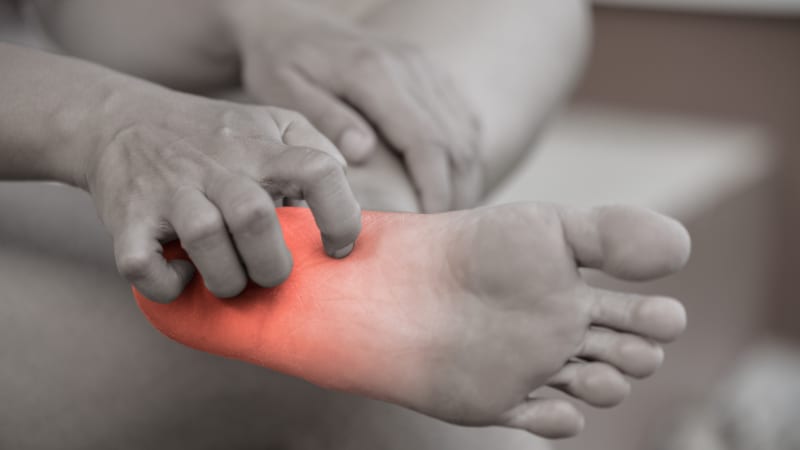A Bright Future Awaits: New Hope in Treatment of Neuropathy

Peripheral neuropathy is a disorder that affects millions of patients around the world, causing discomfort, numbness, and a range of debilitating effects. As conventional treatment methods often are ineffective, the search for enhanced management strategies has accelerated in the past few years. Fortunately, the horizon is beginning to look optimistic, with innovative approaches and pioneering research providing fresh possibilities for those suffering from this challenging condition.
In the modern era, advancements in technology and a deeper understanding of the nervous system have unveiled possibilities to exciting therapies that were once considered fantasy. From regenerative medicine techniques to novel drug formulations, the future of neuropathy management is rapidly evolving. As we explore these intriguing developments, it becomes clear that a subsequent chapter is unfolding in the journey to mitigate the difficulties of neuropathy and enhance the well-being for innumerable individuals.
Grasping Neuropathy
Nerve damage is a word used to denote a broad range of disorders that impact the nervous system. These conditions can arise from diverse causes, including diabetes, infections, immune disorders, and contact to harmful substances. The effects of neuropathy can be both physical and psychological, as individuals may feel pain, frailty, or loss of sensation, leading to a diminished quality of life.
The symptoms of neuropathy often differ depending on the type of nerves affected. Peripheral neuropathy, for example, primarily influences the nervous system external to the brain and spinal cord, leading to feelings such as pins and needles or heat in the arms and legs. Autonomic neuropathy, on the contrary, affects the automatic operations of the body, which can disturb cardiac rhythm, digestion, and blood pressure control. Understanding these distinctions is vital for effective identification and management.
Progress in medical science have resulted in a better understanding of neuropathy and its root mechanisms. Enhanced diagnostic tools and techniques allow healthcare providers to recognize the specific type of neuropathy more accurately. This advancement opens up new avenues for targeted therapies and cutting-edge management approaches, offering promise to those suffering from this challenging disorder.
Cutting-edge Therapeutic Approaches
New advancements in nerve pain care are offering patients a beacon of hope amidst ongoing challenges. One important area of advancement is the development of nerve modulation techniques, such as transcranial magnetic stimulation and SCS. These methods focus on changing nerve function through minimally invasive means, providing an option to traditional pharmacotherapy. By targeting specific nerve channels, these treatments aim to reduce pain and improve sensory function, providing a new avenue for relief in those who have experienced little success with conventional medications.

Moreover, researchers are exploring the promise of restorative medicine, particularly in the context of nerve repair and regrowth. Stem cell therapy has surfaced as a promising treatment, with the capacity to trigger the body's natural healing mechanisms. Clinical trials are examining how stem cells can be employed to repair damaged nerve fibers, potentially restoring function and enhancing quality of life for individuals suffering from multiple forms of neuropathy. This approach demonstrates a shift towards more tailored medicine, where treatment strategies are adapted to the patient based on their particular condition and needs.
In conclusion, the integration of digital health technologies is revolutionizing neuropathy care. neuropathy centers near me and health apps are being designed to monitor patient conditions and provide immediate feedback on treatment effectiveness. This data-driven approach enables healthcare providers to modify treatment plans swiftly based on patient-reported outcomes, enhancing overall care. As technology keeps to progress, the prospect for remote tracking and telehealth consultations will allow for greater accessibility and continuity in neuropathy care, further enhancing the care experience for patients.
Coping with Neuropathy
Coping with neuropathy can be a difficult journey, affecting daily tasks and overall quality of living. The effects, which may include discomfort, tingling, and loss of feeling, can differ widely from person to individual. Many individuals find that dealing with these effects requires a combination of healthcare, lifestyle adjustments, and emotional support. Seeking out the appropriate healthcare provider can make a significant impact in tailoring a strategy that meets individual requirements.
Support systems play a key role in coping with neuropathy. Many people benefit from linking with peers who empathize with their struggles, whether through support groups or online communities. Exchanging stories and gaining knowledge from peers can provide comfort and insightful understanding into handling effects and finding effective ways to cope. Additionally, learning about the condition can enable individuals to advocate for their health and make educated choices regarding therapeutic choices.
Keeping an active lifestyle is essential for those living with nerve damage. Physical activity, when appropriate, can help improve circulation and alleviate pain. Along with exercise, mindfulness practices such as yoga or meditation can assist in handling stress and improving mental health. As advancements in neuropathy management continue to emerge, individuals can hold on to optimism for improved treatments and support, fostering a future where coping with neuropathy becomes more bearable and less lonely.
